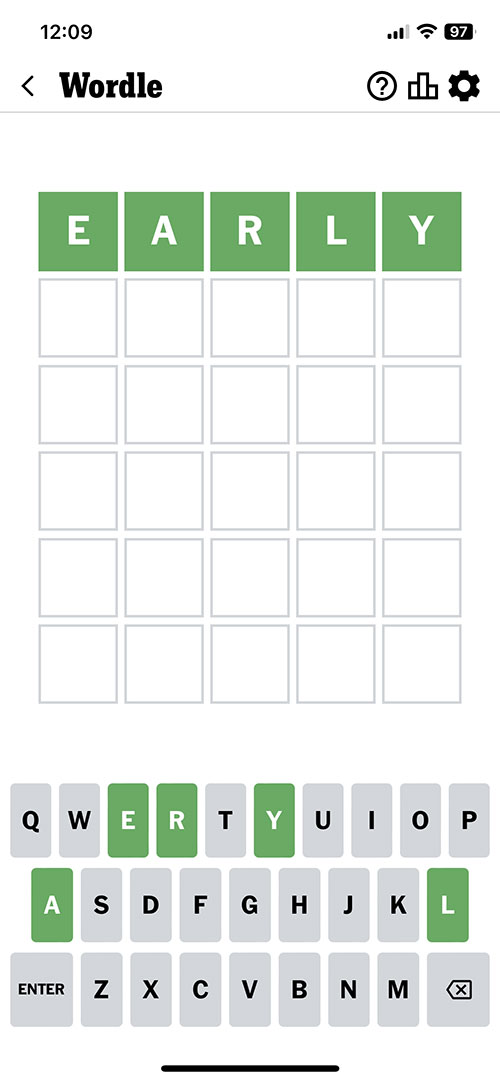Samstag, 9. März 2024 – Wordle und Strands
Am Freitag hatte ich einen unerwarteten Wordle-Erfolg: Mein übliches Startwort war das Lösungswort, weswegen ich das Rätsel logischerweise in einem Zug lösen konnte.

Die NYT, bei der ich als Abonnentin Wordle spiele, hat gerade ein neues Spiel in der Beta-Phase: Strands. Der Atlantic beschreibt, warum es so gut ist, vergleicht es mit Wordle und Connections, einem anderen NTY-Spiel und berichtet gleichzeitig ein bisschen was zur Historie von Spielen auf Zeitungsseiten:
„The word search is perhaps the lowest form of puzzle. As a staple of Highlights magazines and family-restaurant placemats, its purpose is to use up time, quietly. Stare at a grid of letters and find, amid them, a list of indicated words. Is this fun? It is not. The word search is paperwork, but for kids.
Over the years, many have tried to improve the puzzle, to make it more mature. Boggle, introduced in 1972, made word search competitive. SpellTower, a 2011 smartphone game, made it strategic. And now this week, The New York Times has put out Strands, the newest product in its games empire. Strands adds two new features to the classic place-mat game: The player must guess the words to find in each scramble based on a cryptic theme, and the scrambled words, which can bend in any direction, are arranged to use up the entire letter grid. These changes may not sound so transformational, but in the context of a word search, they’re a revelation. Many of the best games succeed by offering a novel take on something familiar. Strands does exactly that. […]
Not so long ago, newspaper puzzles seemed on the verge of extinction. As I argued with my colleagues Simon Ferrari and Bobby Schweizer in our 2010 book, Newsgames, the print media had made the very strange decision to cede a large market for daily puzzling to mobile-game developers such as PopCap, the maker of Bejeweled. Newspapers, we observed, had forgotten that readers needed to be welcomed into the daily news—which is mostly bad news. A friendly and comforting ritual would do the trick: the sports, the weather, the comics, the crossword. But companies like the Times had not yet bothered to translate that function effectively from print to web (or app), so others had taken it from them—and made billions of dollars. The news business got Candy Crushed.
Now that trend has been reversed. The Times’ revival of newspaper games, which really took off with the acquisition of Wordle in 2022, has helped bring in huge amounts of premium-subscription revenue, according to the company. Jonathan Knight, the paper’s head of games, told me that tens of millions of people play Wordle every week, and almost half as many play Connections. Success for a newspaper game, to Knight, means players “coming back to it every day.” The ritual is the thing.“